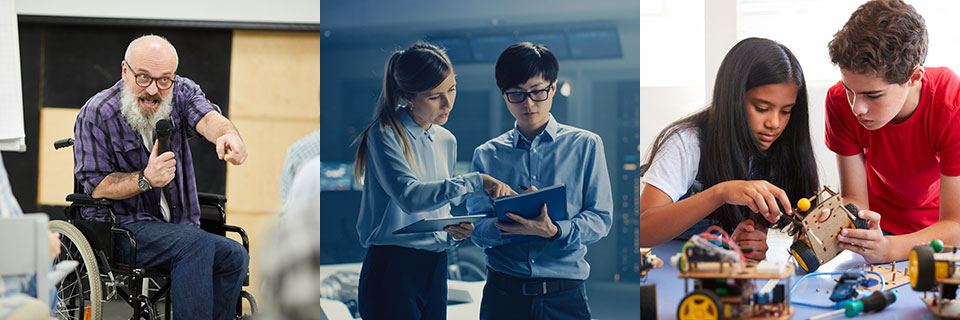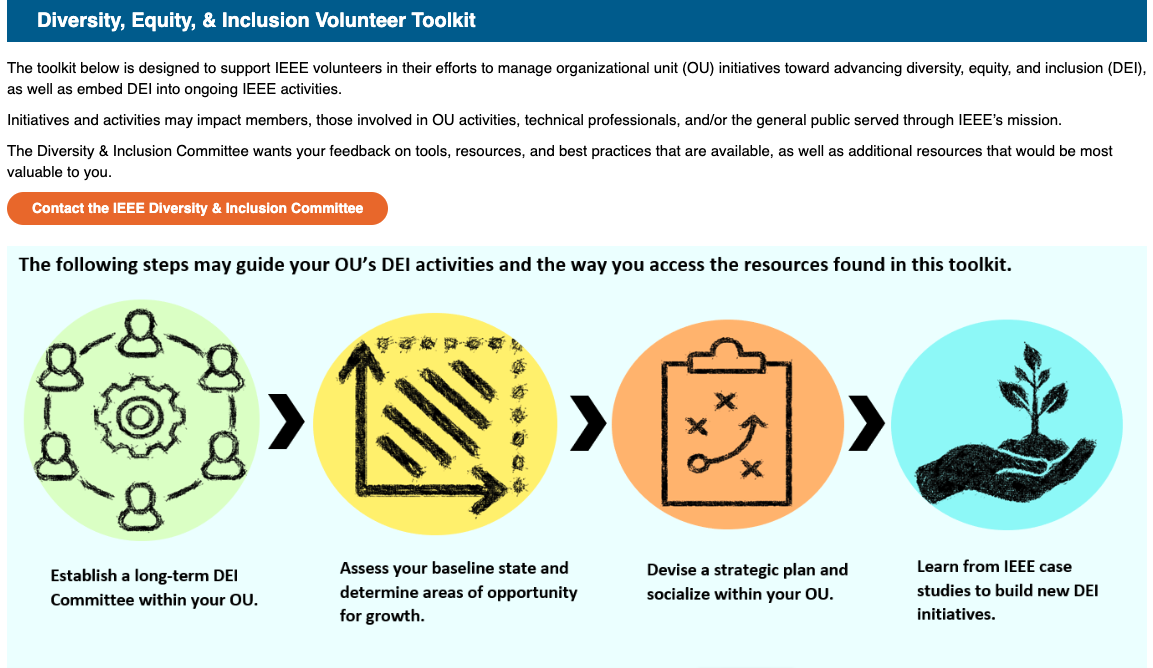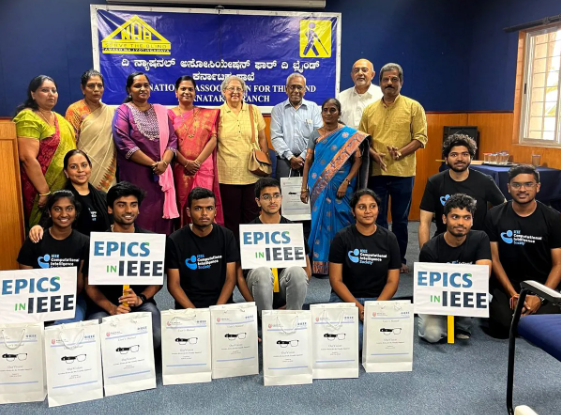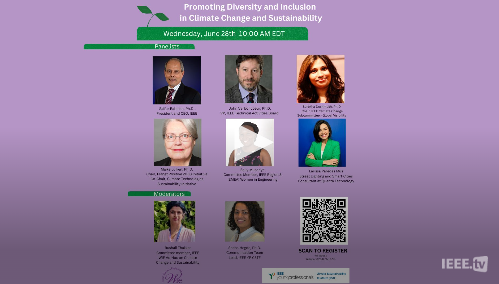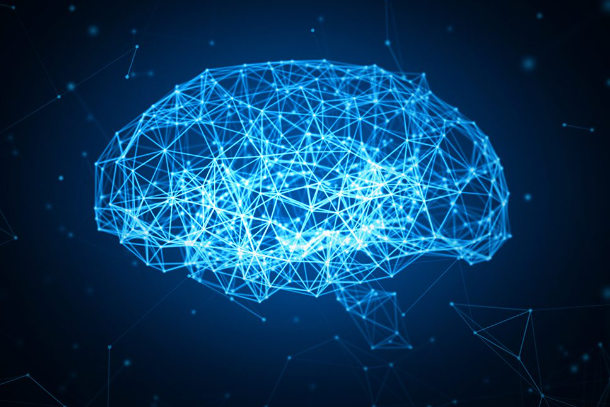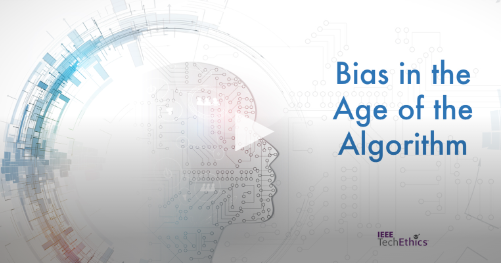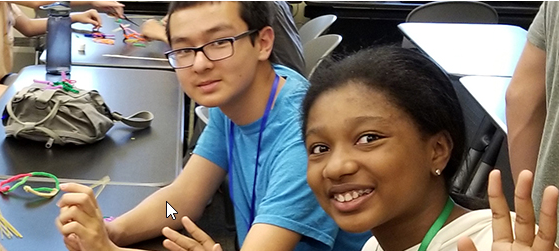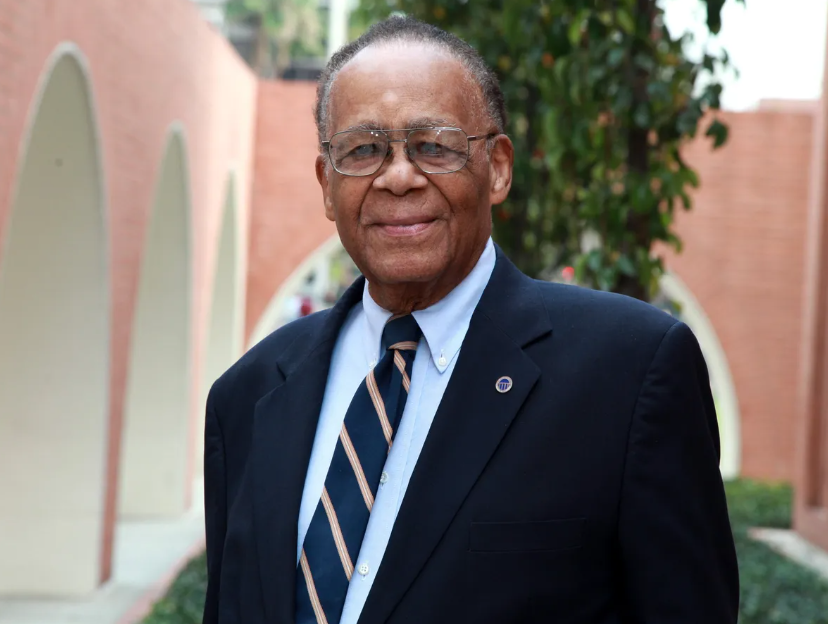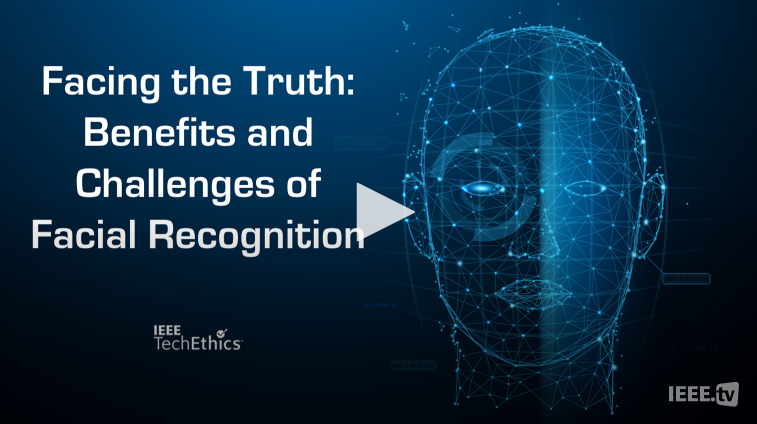IEEE Diversity Statement >>
IEEE’s mission to foster technological innovation and excellence to benefit humanity requires the talents and perspectives of people with different personal, cultural, and disciplinary backgrounds. IEEE is committed to advancing diversity in the technical profession, and to promoting an inclusive and equitable culture that welcomes, engages, and rewards all who contribute to the field, without regard to race, religion, gender, disability, age, national origin, sexual orientation, gender identity, or gender expression.
NEW:
IEEE Volunteer Diversity, Equity, and Inclusion Toolkit
This toolkit is designed to support IEEE volunteers in their efforts to manage organizational unit (OU) initiatives toward advancing diversity, equity, and inclusion (DEI). Login is required.
Facing the Truth: Benefits & Challenges of Facial Recognition | IEEE TechEthics Virtual Panel
As facial recognition becomes more prevalent, there is a need to address the related benefits and challenges. This panel of international biometrics experts discusses these aspects of this increasingly ubiquitous technology.
IEEE Member Spotlight >>
IEEE members share their journeys
Learn about women's experiences in the electron devices field.
Gamero Garrido
Read full profile
Didem Gurder Broo
Read full profile
Recommended resources >>
To be successful, diversity, equity, and inclusion (DEI) strategies require the ongoing support of the entire organization, as well as continued application of improvement. Below, please find resources on diversity, equity, and inclusion:
- > IEEE Accessibility Statement
- > IEEE Code of Ethics
- > IEEE Ethics Reporting
- > IEEE Event Conduct & Safety Statement for Conferences
- > IEEE Nondiscrimination Policy
- > IEEE Virtual User Experience Lab Accessibility Tools
- > IEEE Women in Engineering (WIE)
Pride in Photonics Resources and Best Practices -
Diversity & Inclusion: Bringing Your Full Self to Work
Talk addresses what it is like being diverse and/or LGBT in engineering and STEM. Discussions are held on the importance of mental health, mentorship, and how inclusion practices can increase confidence and belonging. -
The Role of Social Networks: Building Community
The need for community in STEM organizations, what community might look like for individuals from diverse backgrounds, and how to build diverse communities and best practices from the community that the Photonics Society has built. - How to Speak Up & Step Up: Advocate for Diversity
Tips and recommended best practices for advocating for equality and inclusion as either a member of the LGBTQIA+ community or as an ally.
-
Best practices
NEW!
Best Practices for Forming a Diversity, Equity, & Inclusion (DEI) Committee in an IEEE Unit (PDF, 318 KB)
This best practice document guides IEEE units on how to form a DEI committee that will advance diversity, equity, and inclusion initiatives within the unit. The guidance here would be applicable once the IEEE unit approves the formation of the committee in principle.
Best Practices for Awards: Eligibility for Leave Time (PDF, 293 KB)
This best practice outlines language to include in award eligibility requirements for nominees who may have gaps in their resumes due to personal circumstances. This best practice is applicable to all IEEE awards.
Additional diversity, equity, and inclusion resources >>
Below are additional resources on diversity, equity, and inclusion. These include DEI initiatives that can be used as a model for other initiatives and DEI training tools that can be used as part of a DEI initiative.
Please note that IEEE is not responsible for the content of these resources. This is not a complete list of resources, and this will evolve over time to incorporate more comprehensive recommended content.
- Why we need more diversity to solve complex problems
Learn about how diverse thinking increases likelihood to solve complex problems. - Wiley Diversity in Tech Report – US 2021
What's causing the lack of diversity in tech? How can businesses do more to attract more people from diverse backgrounds? - American Psychological Association’s Inclusive Language Guidelines (PDF, 600 KB)
Provides an understanding of the meaning behind problematic language and includes clear recommendations on how to improve language choices and communications.
- Implicit Association Test (IAT):
Measures attitudes and beliefs that people may be unwilling or unable to report. - Addressing Implicit Bias
- ACM-W (Association for Computing Machinery)
- American Institute of Chemical Engineers’ (AICHE) DEI Initiative
- The United Kingdom’s National Academy of Sciences: The Royal Society’s Diversity in Science and STEM Initiative
- UNDP Sustainable Development Goals: Gender Equality
- DiversityInc's mission is to bring education and clarity to the business benefits of diversity. Here are its resources specific to the field of engineering.
- Kirwan Institute, one of the leading experts on implicit bias, has a Race And Ethnicity Implicit Bias Training Module.
- Project Implicit is a nonprofit organization committed to applying scientific knowledge about stereotypes, prejudices and other group-based biases. You can find its Conscious and Unconscious Bias Test here.
- Video of Valerie Alexander from TEDxPasadena: How to Outsmart Your Own Implicit Bias.
- WebAIM is a leading global provider of web accessibility expertise. View its Web Content Accessibility Guidelines Checklist.




